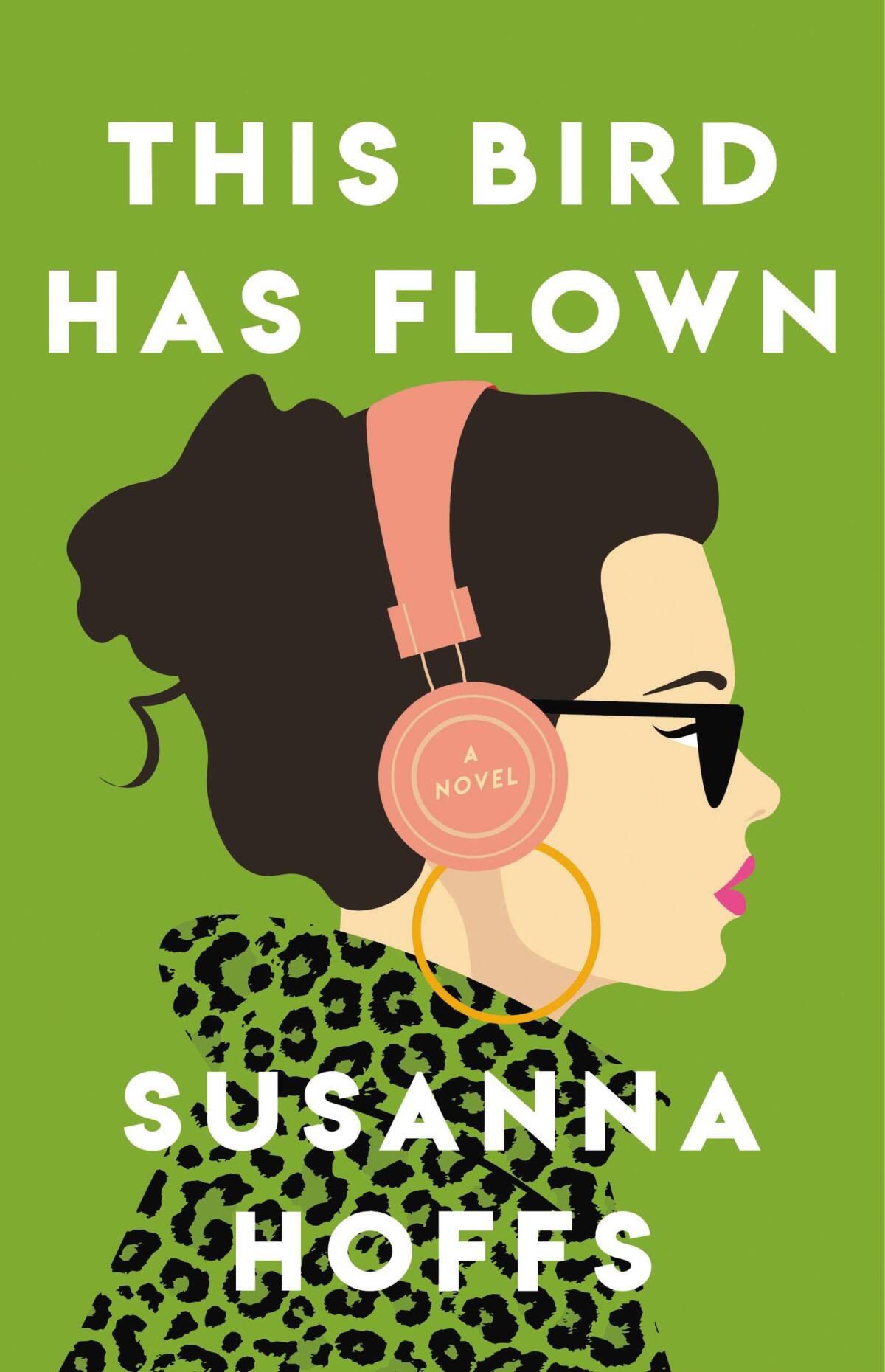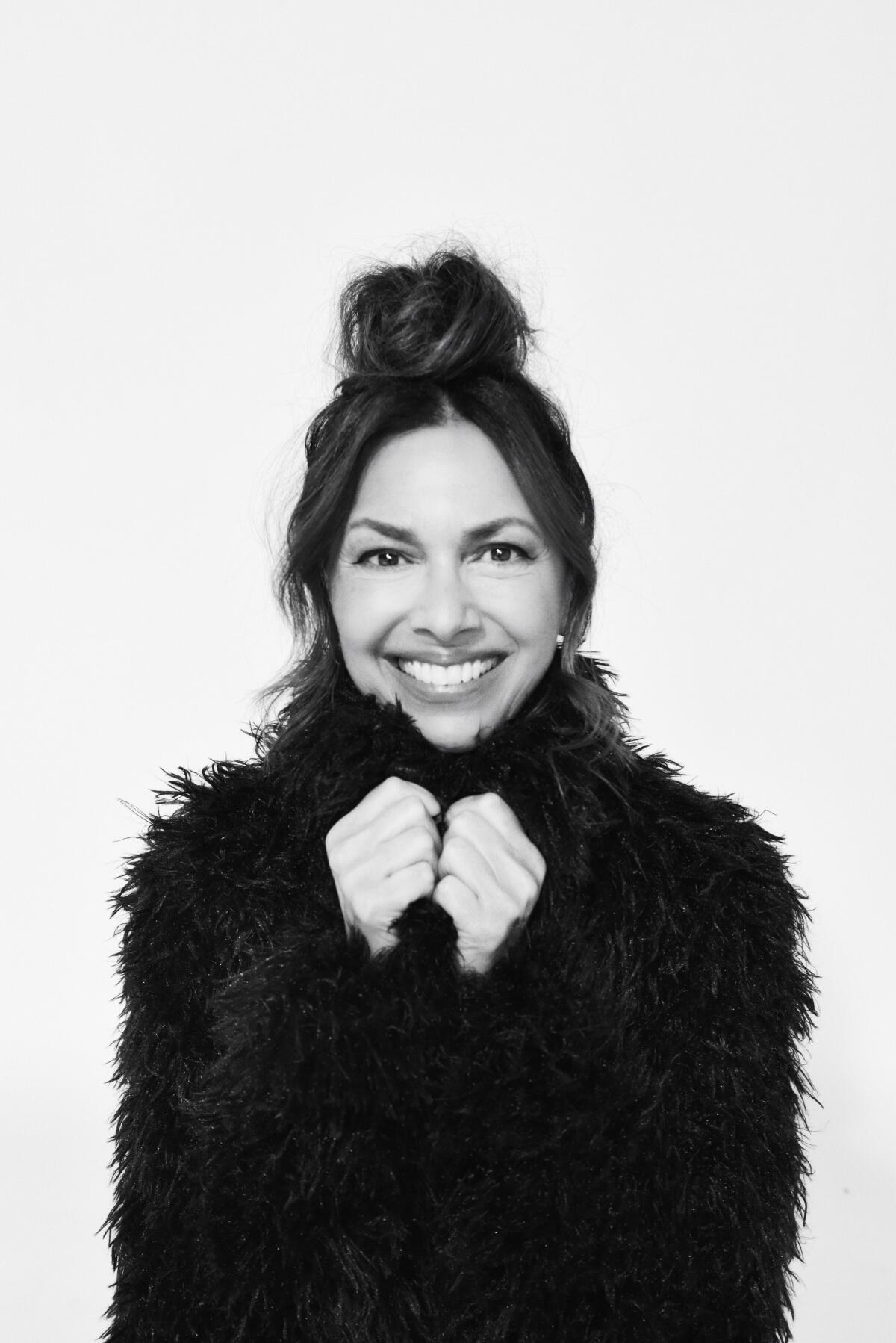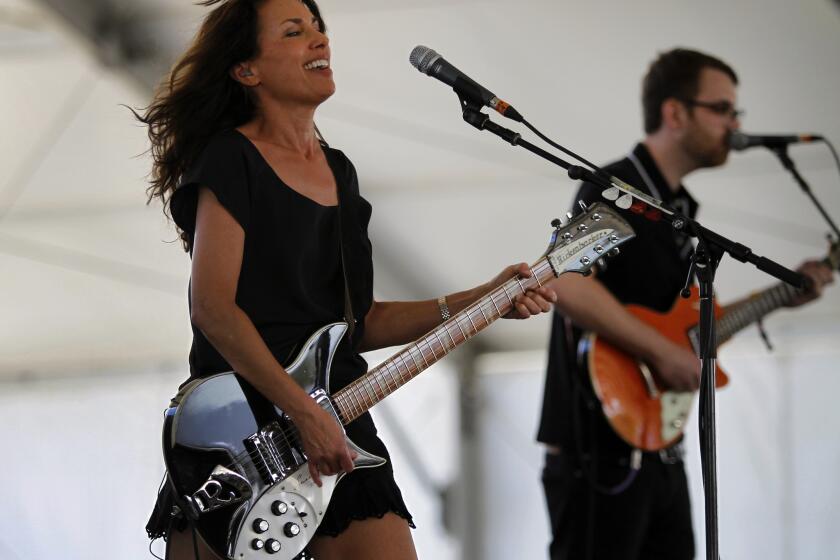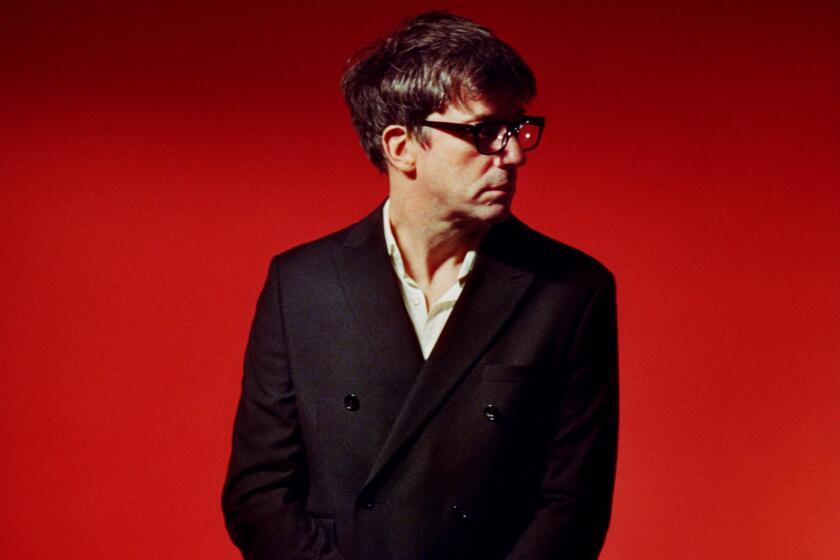The Bangles’ Susanna Hoffs wrote her debut novel about a pop star. It’s not her

- Share via
Review
'This Bird Has Flown'
By Susanna Hoffs
Little, Brown: 368 pages, $29
If you buy books linked on our site, The Times may earn a commission from Bookshop.org, whose fees support independent bookstores.
Jane Start is an accomplished musician for whom commerce, or rather a severe lack of it, has gotten in the way of art. A decade after a big lightning strike, a dance hit called “Can’t You See I Want You,” her career has gone quiet. At 33, Jane is an “over-the-hill, one-hit wonder,” broke and over it, at least until her long-suffering manager and friend Pippa lands her a lucrative gig playing a “private” for some bachelor-party bros in Vegas, where she is paid to wear a garish wig and re-create the smoldering music video for her sole hit. Her heart isn’t in it, but this sad gig is the accelerant for Susanna Hoffs’ clever and entertaining debut novel about the nagging ambivalence of love, missed connections and the transcendent power of a great two-minute pop song.
Hoffs is intimately familiar with this world. You might know her as the lead singer of a pop band called the Bangles, which sold millions of records in the 1980s, appearing in constant MTV rotation with megahits “Walk Like an Egyptian,” “Eternal Flame” and “Manic Monday” at a time when that cable channel had a vise lock on young America.
Perhaps the unlikeliest act to perform at last weekend’s Stagecoach Country Music Festival, Susanna Hoffs acknowledges she doesn’t keep up with the latest sounds out of Nashville.
Like Hoffs herself, Jane Start perhaps knows a little too much about how the sausage gets made, and she keeps a wary distance from the business. Her love of music is pure, though, which is why we root for her. Despite the setbacks, she hasn’t forsaken passion for cynicism. “I’d never yearned for the spotlight, only the music,” Jane muses, “to strive to give others what music has unwaveringly given to me.”

The novel tracks Jane’s long swim back into herself and her art, which really kicks off when Pippa surprises her with a one-way ticket to the U.K. — a “mental-health mini-break” that becomes an emotional and artistic crucible.
But it’s a long road there. At the start of the novel, Jane is coming off a toxic codependent relationship with her cheating filmmaker boyfriend. She doom-scrolls social media, morose and unmotivated, looking for warning signs of an impending wedding between her ex and a 23-year-old lingerie model. Then, proving that good things do happen on commercial air flights, she meets an Oxford English professor named Tom Hardy en route to the U.K., and her constricted world begins to open up. The clincher: Professor Hardy knows his music. When Tom, in the early stages of their budding romance, sends a flirty text name-checking an obscure Bob Dylan song, Jane lights up: “A bold, out-of-the-box choice. How adorable, I thought, calling Bob out on his Nashville Skyline voice, which frankly divided people.”
Blur guitarist Graham Coxon had fame and fortune, but hated the attention. His sharp memoir ‘Verse, Chorus, Monster!’ documents his struggles and recovery
The slow burn of this relationship — how the intense curiosity of their infatuation blooms into the wonder of affection — is one of the pleasures of Hoffs’ novel. Jane and Tom tentatively circle each other; he quells her fear of flying, they bond over Keats’ sonnets and Isaac Hayes’ theme from the 1971 movie “Shaft.” Tom offers her a writing space in his “rooms” at Oxford, and Jane gets to live the life of an expatriate in the land of Virginia Woolf, W.H. Auden and Paul McCartney. But the one song Pippa needs to refire Jane’s career remains elusive, and now Jonesy, the Mark Ronson-meets-Dr. Luke Svengali who wrote Jane’s hit, reemerges with the promise of a comeback at a big arena gig of the kind that the Bangles themselves might have played in 1986.

As Jane finds herself pulled in multiple directions at once — trying to assuage Pippa while negotiating a fast-track relationship with Tom and holding off Jonesy for as long as she possibly can — Hoffs spins the gears of her antic narrative with sharp, sardonic wit and an insider’s feel for the mixed blessings of pop fame and a fickle public. But just as the wheels start to fall off, and Jane sniffs out a brewing betrayal that threatens to detonate everything, grace arrives in the form of a few well-chosen lyrics and a decision that will align all the moving parts of Jane’s chaotic life in a satisfying way.
Jane has to travel a great distance to find the one simple thing that will sustain her, but such is the power of music; it can give us the key to ourselves at those times when we need it the most. Hoffs understands this acutely, which is why “This Bird Has Flown” rings so true. Read it with the radio on.
Weingarten is a writer in Los Angeles.
More to Read
Sign up for our Book Club newsletter
Get the latest news, events and more from the Los Angeles Times Book Club, and help us get L.A. reading and talking.
You may occasionally receive promotional content from the Los Angeles Times.










